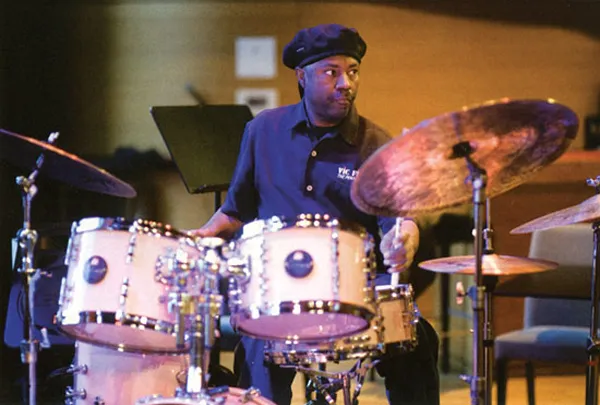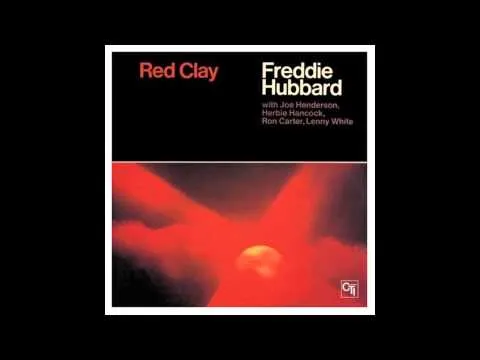Joe Henderson (tenor sax), Freddie Hubbard (trumpet), Herbie Hancock (electric piano), Ron Carter (electric bass) and Lenny White (drums). From the album Red Clay (1970).
Lenny White is a self-taught and multifaceted American jazz fusion drummer. He played frequently with Jackie McLean in 1968 and participated in Miles Davis’s Bitches Brew in 1969. He has played with numerous important musicians, such as Stan Getz, Gil Evans, Joe Henderson, Herbie Hancock, Gato Barbieri, Woody Shaw and Stanley Clarke among others. He became a member of the Aztec band in 1972, but it was disbanded a year later.

Then he joined Chick Corea’s group of Return to Forever from 1973 to 1976, appearing in Hymn of the Seventh Galaxy (1973), Where Have I Known You Before (1974), No Mystery (1975) and Romantic Warrior (1976). Then he recorded the jazz-rock albums of his own Venusian Summer (1975), Big City (1979), The Adventures of Astral Pirates (1978) and Streamline (1978). Although he gained a solid reputation as a jazz fusion drummer, he was versatile enough to play in different contexts. In 1979 he founded the rhythm and blues band Twenninine and recorded Best of Friends with them. In 1981 he played on the album Echoes of an Era (1982) by funk singer Chaka Khan and then became one of the Jamaica Boys.

The introduction is an absolute chaos, like the ones organized by Charles Mingus. Then the rhythm section plays a brief interlude with Carter at the head and finally Henderson and Hubbard join in to expose the theme in unison. The melody is suggestive with soul sounds. Inmediately Hubbard comes in with a decided and daring solo sprinkled, as always, with his special effects. His creativity is endless. Then the group plays a riff from the main theme to give way to Henderson, who begins his solo with balanced sentences. Afterwards, he continues to play more intensely introducing all kinds of tricks and getting closer to the freedom of free jazz improvisation to return later to more conventional grounds. The group follows him playing the previous riff again and Hancock enters in a sophisticated way. His discourse is consistent and complex. To end, the group re-exposes the theme fading out.
© CTI Records

